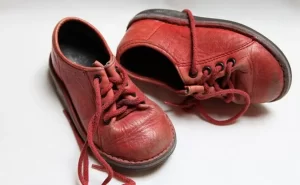The Hidden Dangers of Air Pollution: What Every Parent Should Know About Children’s Lung Health
Air Quality Impacts on Children’s Lung Development
Air Quality Impacts on Children’s Lung Development
Here’s a closer look at how overheating and heat can degrade air quality and impair lung development in children.
Here’s a closer look at how overheating and heat can degrade air quality and impair lung development in children.
Heating and Air Quality
Ground-Level Ozone: Heat and sunlight can promote the production of ground-level ozone, a hazardous air pollutant. Ozone irritates the lungs and can cause respiratory issues, particularly in children who are still developing.
Increased Pollution
Higher temperatures can trap existing air pollutants such as smog closer to the ground, making it more difficult for them to spread. This can result in increased concentrations of hazardous particles in the air, irritating children’s lungs.
Wildfires
Hot and dry weather can enhance the risk of wildfires. Smoke from wildfires emits a number of toxins into the atmosphere, deteriorating air quality and providing a substantial health concern, particularly for children with asthma or other respiratory disorders.
Impact on Lung Development
Children’s lungs are still maturing, making them more vulnerable to air pollution damage than adults’.
Increased Breathing Rate
In hot weather, children breathe faster, inhaling more air contaminants that might irritate their airways.
Long-Term Effects
Childhood air pollution exposure may increase the likelihood of acquiring chronic respiratory diseases such as asthma later in life.
Here are some ways to protect children from the negative impacts of heat and air pollution
Limit Outdoor Activity at Peak Heat Hours
Encourage kids to play outside at cooler times of the day, such as early morning or evening.
Stay Hydrated
Make sure your children consume plenty of water to keep them cool and hydrated, as this helps their bodies work correctly.
Monitor Air Quality Reports
Stay informed about air quality forecasts in your area and minimize outdoor activities when pollution levels are high.
Consider Air Purifiers
Using air purifiers indoors can help to improve air quality and limit exposure to harmful contaminants. These devices suck in ambient air, filter it, and then recirculate the cleaner air back into the space.
Consult a Doctor
If your kid suffers from asthma or other respiratory issues, speak with their doctor about how to manage their symptoms during hot weather and heavy air pollution.
Understanding the links between heat, air quality, and lung development allows us to take action to protect children’s health and create a safer environment in which to play and grow.
Understanding the links between heat, air quality, and lung development allows us to take action to protect children’s health and create a safer environment in which to play and grow.













